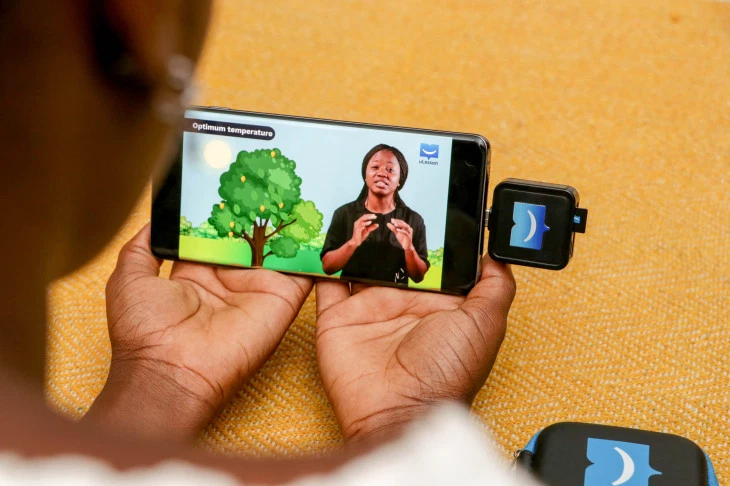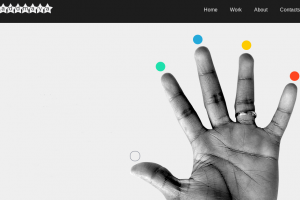In Nigeria, maybe Africa, EdTech startups do not attract the sort of funding that their FinTech counterparts enjoy. A possible reason could be the discrepancies in their respective addressable markets.
Former Konga boss, Sim Shagaya’s new company – ULesson – raised $3.1 million seed funding some weeks back. While there has been a couple of EdTech companies come out of Nigeria, none of them has raised capital as big as this.
And we’re thinking maybe, just maybe, his solution is the ideal approach to finally crack EdTech in the country, and the African continent.
ULesson, as indicated by the founder, will be launching in February 2020.
Who is ULesson built for?
From the website, the company is creating a platform to revolutionize the way students learn and prepare for their exams, in preparation for higher education and what comes after.
Hence, their targets are secondary school students preparing for their certification exams. These crops of the company’s target audience are generally not financially buoyant (to be paying customers) neither do a lot of them enjoy the total freedom to interact with products online.
As a result, the obvious & better model would be to target the parents of these students.
How exactly will ULesson operate?
One very commendable part of ULesson’s operations is that all the educational content to be churned out are created in-house. From a production studio based in Jos, Plateau state.
From video snippets around the internet, it can be inferred that a lot of investment was made into producing content. And who’s king again? You guessed right.
They have paid proper attention to the little details like the tutors wearing a plain shirt, utilizing a plain background, all of which is assumed to effectively minimize distractions and help the viewers pay proper attention and gain maximum value – which should be the whole point.
From a statement by the company, they have “squeezed thousands of WAEC-curriculum relevant, richly-animated yet high-resolution lessons unto a dongle you simply plug in. No data costs.”
This means, to use uLesson, you will need to purchase a dongle in addition to downloading the mobile app.
Their statement adds that users can request a free visit from a uLesson counselor. The aim of the visit will be to discuss the learner’s academic performance and goals.
For parents and guardians, they are required to log in once a week to view analytics and reporting data which can guide optimization of the learning experience.
Overall the uLesson experience appears to be a near-perfect approach to EdTech in Nigeria.
Why is this a big deal?
The number of smartphone users in Nigeria, Africa’s biggest economy and most populous country, is forecast to grow to more than 140 million by 2025. It is currently pegged between 25 and 40 million.
Hence, the market for people who can use uLesson keeps growing rapidly by the day.
Also, let’s take a dive into some of the current crop of EdTech companies.
- Pass.ng – here, students can prepare for various examinations. WASSCE, UTME e.t.c
- Passnownow – they have digitized the entire school syllabus and give access to it.
- Tuteria – serves as a link between students and tutors.
- ScholarX – keeps you up to date on scholarship opportunities to explore.
…and more like them.
Some of the listed companies provide educational content online (e.g Passnownow) while some others adopt the offline model of service offering (Pass.ng has an offline mobile app with past questions).
But what distinguishes uLesson, you might wonder.
Video, offline content.
According to Wordstream, marketers who use video grow revenue 49% faster than non-video users. SmallBizTrends also affirms that social video generates 12 times the shares than text and images combined.
The whole point of these stats is that people generally engage with videos more than other forms of content. Hence, the use of video content by uLesson is a pretty great idea. But that’s not all.
Stay with me…
Streaming media (videos) directly from the internet would apparently consume more data than images or texts. This is a talking point, especially in a continent where data is quite expensive.
uLesson has therefore plugged two gaps. First, producing video contents which generally would be more engaging (and interesting), and secondly, making sure these videos are available offline which plugs the gap of expensive data and unreliable internet connectivity in the region.
Genius, don’t you think?
Only time will reveal how well uLesson will fare in the EdTech space. But from indications, they have a great product with unique value propositions, and an experienced founder to execute.
What’s more? We can’t wait to find out.












